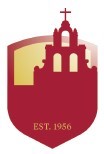Topic 6-12-09 – Sportsmanship Code for Spectators
Responsibility of Students and Parents/Guardians
A. ATHLETES
- Serve as a positive example by exercising self-control and good sportsmanship. Players will shake hands with players on the opposing team at the conclusion of a game.
- Accept both victory and defeat with pride and compassion.
- Accept seriously the responsibility and privilege of representing their school community.
B. CHEERLEADERS/PEP ORGANIZATIONS
- Always be positive. Never be negative. Base your crowd control plan on this rule.
- Choose the appropriate cheers at the right time, ensuring that cheering is positive and does not inflame or incite rooting sections and spectators.
- Adhere to all CAA and CIF regulations on the use of noisemakers and musical instruments at athletic events.
- Skits at pep rallies should be positive. Build the skits around your team, not the team at the other school. Never belittle, degrade, or put down the other school in a skit. Posters, banners, etc., used at rallies and games must follow the same guidelines. Do not use provocative words such as “kill", “bury" or “cripple".
- Cheers must always be of a positive nature. Provocative, vulgar, and obscene language or gestures must never be used.
- Do not use cheers which use the other school's name, colors, symbols, mascots, coaches, or players' names.
- Do not use cheers which are aimed at game officials. Booing is not an expression of good sportsmanship.
- Work cooperatively with the other school's team and cheerleading squad.
- In a confined environment such as a gym, special guidelines must be followed. Do not use noisemakers, bells, horns, etc., at basketball and volleyball games.
- Inappropriate social media remarks may cause disciplinary action by the Athletic Department and/or school.
- The host school may have a pep band. This band may play before the game, during time-out and intermissions, and after the game. Electronic amplification is prohibited. The visiting school is not permitted to bring its pep band.
C. STUDENT SUPPORTERS AND SPECTATORS
- Use announcements and posters to promote school spirit and good sportsmanship at events. Signs and posters are the responsibility of cheerleaders/pep squad organizations and therefore must be approved by the appropriate adult at the school.
- Promote pregame interest and activity so that the athletic program is shared by all, not just athletes. Give positive support at all rallies.
- Be a good host or guest in relationship to the other school. Treat them as you would wish to be treated. Be respectful during the playing of the National Anthem, pregame ceremonies, half-time activities, and the singing of the Alma Mater.
- Follow the directions of cheerleaders and security personnel. Stay away from the visiting school's rooting section and avoid any provocative activity. Students involved in unauthorized activity at athletic events will be subject to disciplinary action.
- Stay away from the other school's campus and vicinity prior to and after athletic events (except on official school business). Any vandalism or destruction of another school's property will subject the student to severe disciplinary action.
- Stay out of playing areas until the athletic event is completed.
D. PARENTS/GUARDIANS
- Insist that your sons and daughters adhere to the high standards of good sportsmanship on and off the playing field as athletes or spectators.
- Support the school athletic program through participation in booster clubs, security programs, and by attendance at athletic events.
- Set a good example by your behavior at athletic events, whether your daughter or son is a player or a spectator.

